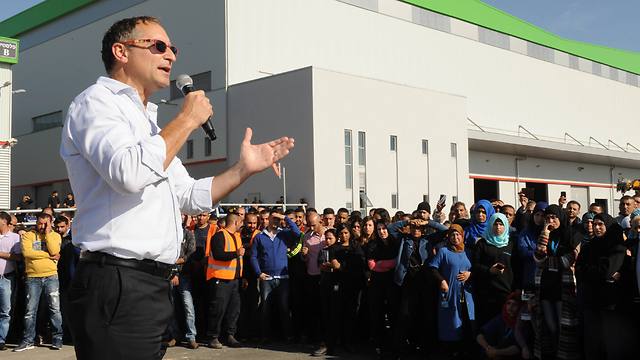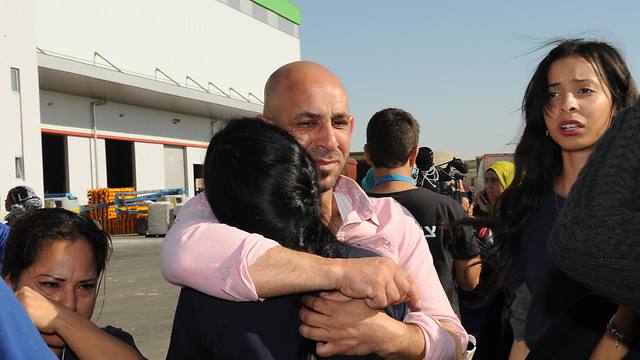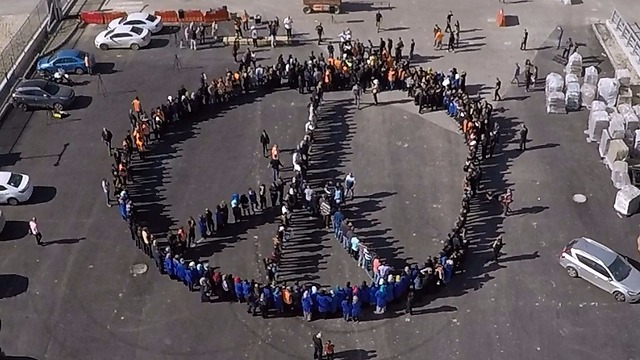
SodaStream lays off last Palestinian workers after permit row
CEO Daniel Birnbaum says dismissal of 74 Palestinian workers is not BDS Movement's fault, but that of the Israeli gov't, which refuses to grant them work permits.
The company, which manufactures a device for making fizzy drinks at home, announced in late 2014 it was closing the West Bank plant following a boycott campaign that included targeting Hollywood actress Scarlett Johansson after she advertised its product.
The plant, located in a Jewish West Bank settlement, closed in October last year, laying off more than 500 Palestinains, and then relocated inside Israel.
The movement known as BDS campaigns against Israel over its presence in the West Bank and pressured SodaStream to move out of the Palestinian territory.
Mahmoud Nawajaa, the BDS coordinator in the West Bank town of Ramallah, called the loss of the Palestinian jobs at SodaStream "part of the price that should be paid in the process of ending the occupation."
At the time, 74 experienced Palestinian workers moved with the company which also hired hundreds of Israelis.
The Palestinian staff, many of whom had worked at the company for years, have been caught in a permit battle between the firm and Israeli authorities.
On Monday, they boarded buses to leave the plant in the southern Israeli town of Levahim for the last time, many visibly emotional, as company officials expressed outrage.
The movement known as BDS campaigns against Israel over its presence in the West Bank and pressured SodaStream to move out of the Palestinian territory.
The Israeli government refused to grant the 74 Palestinians work permits beyond the end of February, according to the company.
The company, which had revenues of $112.9 million in the final quarter of 2015, initially threatened to halt production at its factory unless the "essential" workers were given permits.
However, it later backed down and made them redundant.
Birnbaum said he was "still hopeful" a solution could be found and said the company might move some operations back to the West Bank.
'There is no hope'
COGAT, the Defense Ministry body responsible for coordinating Israeli government activity in the Palestinian territories, declined to comment on the redundancies but reiterated that it had helped facilitate the movement of the factory.
"COGAT has taken many measures to help the factory and provided temporary permits to hundreds of laborers in the past year and a half to enable the transfer (of the factory)," a statement said.
According to COGAT, 58,000 Palestinians hold permits to work in Israel, with another 27,000 working for Israeli businesses in West Bank settlements and industrial zones.
SodaStream -- which employs around 1,200 people -- has called for that number to be increased but that would require a government decision.
At a march to protest the government's decision on Monday, a few hundred SodaStream employees formed a peace sign at the company's Lehavim factory.
Palestinian employees were then loaded onto buses for the last time to be taken into the West Bank.
"There is no hope in Palestine. There is little work."
Bassel Salhaya said he had no plan for future employment in the West Bank.
"We were together 12 hours a day, more than I see my wife and son," he said. "We became like brothers."
AP contributed to the report.















